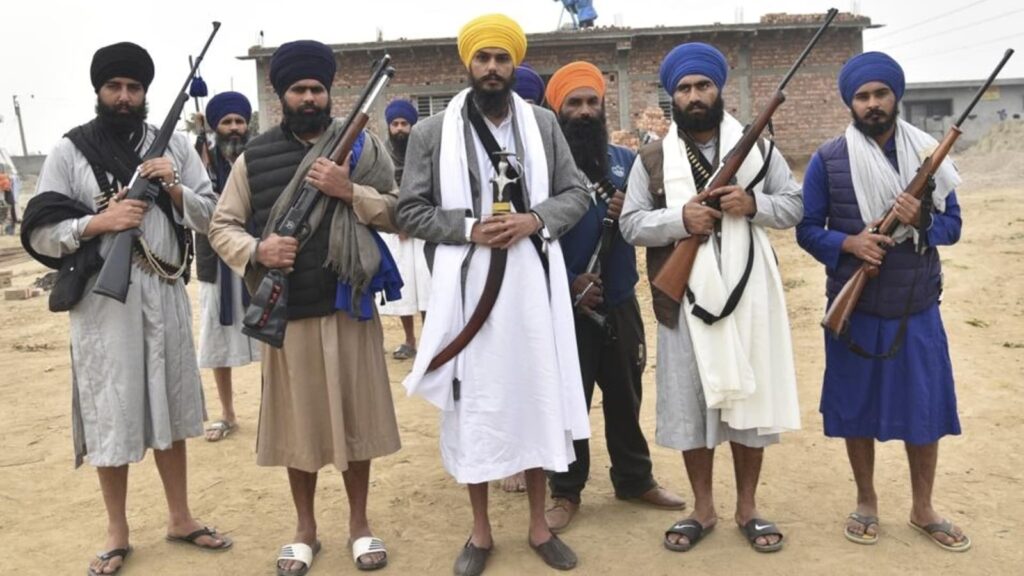Thirty-seven days after he mounted a dramatic escape to slip through a Punjab Police cordon, radical Sikh preacher Amritpal Singh was arrested from Moga’s Rode village in the early hours of Sunday. Details of the exact sequence of events are still falling into place, but it appears that Mr Singh delivered a speech in a gurdwara before his arrest in a possible attempt to fuel comparisons with separatist leader Jarnail Singh Bhindranwale, who also hailed from Rode village. Over the last two years, the Waris Punjab De chief sought to fashion himself after the 1980s leader, and surfacing in the latter’s ancestral village is another such attempt, one that an alert government must nip in the bud. Any efforts by his followers to inflame passions or invoke the support of the Sikh clergy must similarly be acted against.
Mr Singh, who is accused of secessionist activities, spreading communal disharmony and attacking police officers, and charged under the National Security Act, should now be tried to the fullest extent of the law after a transparent and rigorous probe. But beyond the immediate circumstances of his rise, two sets of concerns remain. The first is surrounding his mysterious and meteoric rise after his abrupt return from West Asia. Who was behind his quick consolidation of power just months after coming to India? How did he coalesce support for a barely disguised secessionist cause in a state where such feelings were believed to be on the wane? What elements, domestic or foreign, were responsible for his anointment as the head of a controversial outfit that didn’t hesitate to use provocative strategies such as using the Sikh holy book as a shield while laying siege to a police station? And why did the state government not act against him sooner? The second concern is about the socioeconomic landscape of the state. Mr Singh’s rise and appeal among some sections exposed a grim image of a region where falling per capita incomes, deepening distress in agriculture and social evils such as drug use have stoked deep anxieties among young people, and laid bare the political vacuum that the sweeping farm protests left after they ended. These anxieties will need to be addressed through long-term and thoughtful governance strategies that marry political outreach with an economic salve, not populism.
His arrest marks the end of a turbulent phase in a state where the scars of separatism remain fresh. The administration has arrested the trajectory of Waris Punjab De. But unless this moment is used to allay broader concerns and address issues that aided his rise, the possibility of such an eventuality will linger.

